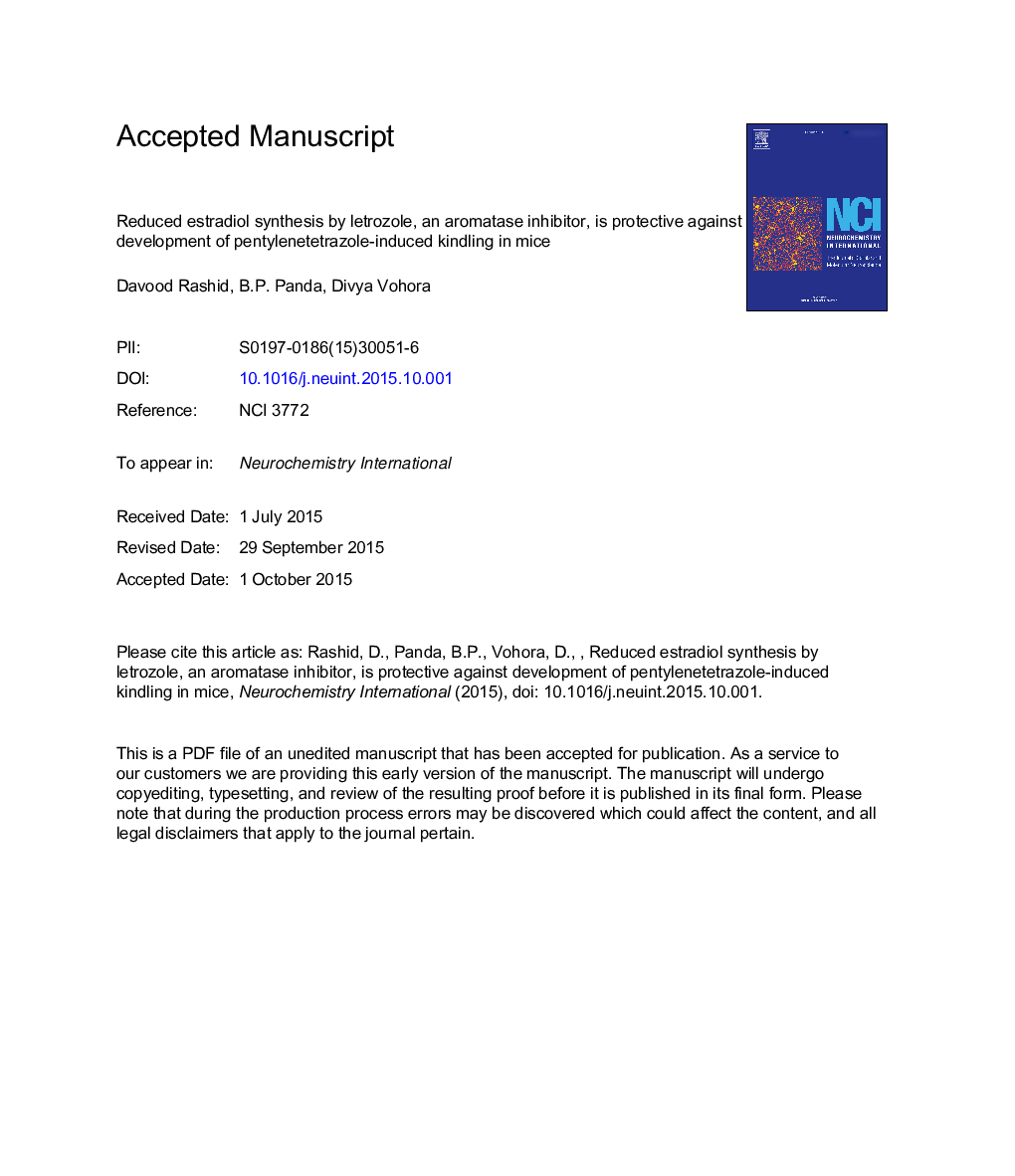| Article ID | Journal | Published Year | Pages | File Type |
|---|---|---|---|---|
| 8479138 | Neurochemistry International | 2015 | 15 Pages |
Abstract
Neurosteroids, such as testosterone and their metabolites, are known to modulate neuronal excitability. The enzymes regulating the metabolism of these neurosteroids, thus, may be targeted as a noval strategy for the development of new antiepileptic drugs. The present work targeted two such enzymes i,e aromatase and 5α-reductase in order to explore the potential of letrozole (an aromatase inhibitor) on pentylenetetrazole (PTZ)-induced kindling in mice and the ability of finasteride (a 5α-reductase inhibitor) to modulate any such effects. PTZ (30 mg/kg, i.p.), when administered once every two days (for a total of 24 doses) induced kindling in Swiss albino mice. Letrozole (1 mg/kg, p.o.), administered prior to PTZ, significantly reduced the % incidence of kindling, delayed mean onset time of seizures and reduced seizure severity score. Letrozole reduced the levels of plasma 17β-estradiol after induction of kindling. The concurrent administration of finasteride and letrozole produced effects similar to letrozole on PTZ-kindling and on estradiol levels. This implies that the ability of letrozole to redirect the synthesis of dihydrotestosterone (DHT) and 5α-androstanediol from testosterone doesn't appear to play a significant role in the protective effects of letrozole against PTZ kindling. Letrozole, however, increased the levels of 5α-DHT in mice plasma. The aromatase inhibitors, thus, may be exploited for inhibiting the synthesis of proconvulsant (17β-estradiol) and/or redirecting the synthesis of anticonvulsant (DHT and 5α-androstanediol) neurosteroids.
Related Topics
Life Sciences
Biochemistry, Genetics and Molecular Biology
Cell Biology
Authors
Davood Rashid, B.P. Panda, Divya Vohora,
